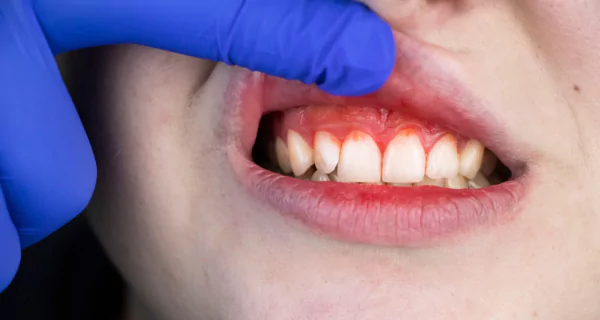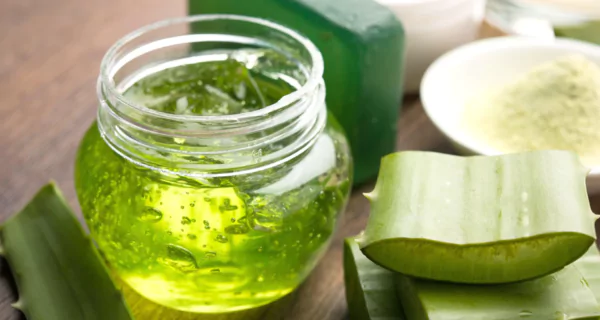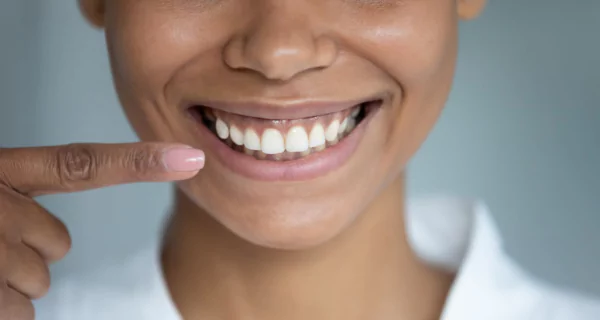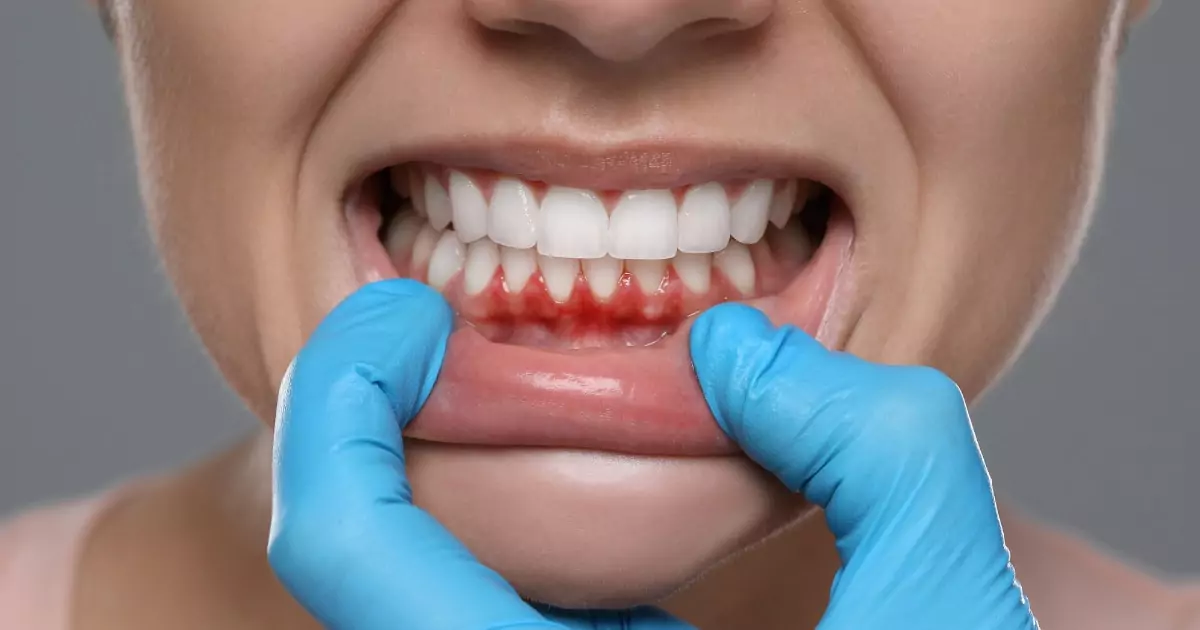Last Updated on: 19th September 2025, 12:36 pm
Learn about bruised gums: the causes, symptoms, and expert treatments. Discover effective home remedies and how to prevent bruised gums for better oral health.
Did you know that your gums can bruise, just like the skin on your body? The gums are soft, delicate tissues that play a vital role in protecting and supporting your teeth, yet they can sometimes be prone to damage. Gum health is a key part of overall oral hygiene, but it’s often overlooked until discomfort or visible problems arise.
One common issue is bruised gums, which can cause tenderness, discoloration, and swelling. While usually not serious, this condition may indicate underlying dental concerns or result from everyday habits, like brushing too vigorously.
In this article, we’ll explore the causes, symptoms, treatments, and preventive measures for bruised gums, offering expert tips to keep your smile healthy and pain-free.
What are bruised gums?

Bruised gums are areas of gum tissue that appear swollen, tender, or discolored, often showing shades of dark purple, red, or even black. This occurs when the delicate blood vessels beneath the gum’s surface are damaged due to minor trauma or injury. Unlike gum inflammation, which is commonly caused by poor oral hygiene, bruising results from direct physical impact, such as aggressive brushing, flossing too hard, or accidental injury.
This condition can cause discomfort, sensitivity, and pain, particularly when eating or brushing. While bruised gums often heal on their own, they should not be ignored. Persistent bruising may indicate poor dental habits or underlying conditions that, if left untreated, could lead to more serious complications. Recognizing and addressing bruised gums promptly is key to maintaining an optimal oral health.
What causes bruised gums?

Understanding what triggers bruised gums is essential for proper treatment and prevention. Here are the most common causes:
- Aggressive brushing or flossing: Many people mistakenly believe that brushing harder ensures cleaner teeth, but aggressive brushing or flossing can damage gum tissue, leading to irritation and bruising. Using a toothbrush with hard bristles or flossing roughly can further increase the risk.
- Physical trauma: Injuries from biting hard foods like ice, nuts, or hard candies can damage the gums. Additionally, accidents such as falls, sports impacts, or other mouth injuries can result in bruising or swelling.
- Poorly fitting dental appliances: Dental devices such as braces, retainers, or dentures that don’t fit correctly can rub against the gums, causing irritation and eventual bruising.
- Gum infections or periodontal disease: Bruised gums can sometimes be an early sign of gum infections or periodontal disease. These conditions weaken gum tissue, making it more susceptible to injury or discoloration.
- Vitamin deficiencies or medical conditions: A lack of essential nutrients, particularly vitamins C and K, can compromise blood vessel strength, making gums more susceptible to bruising. Certain medical conditions, such as clotting disorders, or medications like blood thinners, can also increase the likelihood of gum bruising.
What are the symptoms of bruised gums?
Recognizing bruised gums involves paying attention to specific symptoms that indicate the tissue has been affected. These include:
- Gum discoloration: A hallmark sign of bruised gums is a change in color. The affected area may appear reddish, purple, or darker than the surrounding tissue, caused by damage to the blood vessels beneath the gum’s surface.
- Swelling or inflammation: Bruised gums often become swollen or inflamed, which can make them more noticeable and sensitive. This swelling may create discomfort during activities like chewing or speaking.
- Tenderness or pain: A bruised gum can feel sore or tender, particularly when touched or when engaging in oral hygiene routines such as brushing or flossing.
- Bleeding during oral care: If you notice bleeding during brushing or flossing, especially around a specific area of discoloration, it could be a sign of bruising rather than general gum inflammation.
- Lingering sensitivity: Bruised gums may cause a dull ache or heightened sensitivity to temperature changes, such as discomfort when consuming hot or cold foods and drinks.
These symptoms are often mild, temporary and tend to resolve on their own, but persistent or worsening signs should not be ignored. If the discomfort or discoloration lasts longer than a few days, or if you notice signs of infection warrant a dental consultation.
How to treat bruised gums
Bruised gums typically heal with appropriate care, but the treatment approach depends on the severity of the condition. Here are some of the most effective methods to alleviate discomfort and promote healing:
1. Rinse with warm saltwater
A simple saltwater rinse can help soothe irritated tissue, reduce swelling, and prevent infection. Mix ½ teaspoon of salt into a cup of warm water, swish gently in your mouth for about 30 seconds, and spit it out. Repeat this process twice daily until the bruising subsides.
2. Use a cold compress

To minimize swelling and numb the affected area, apply an ice pack wrapped in a clean cloth to the outside of your cheek near the bruised gum. Hold it in place for 10–15 minutes at a time, repeating as needed throughout the day. The cold reduces swelling and numbs the area, providing immediate relief.
3. Switch to a soft-bristled toothbrush
Avoid further irritation to the gums by using a toothbrush with soft bristles and brushing gently in circular motions. Replace your toothbrush every three months or sooner if the bristles become worn.
4. Over-the-counter pain relief
Medications like ibuprofen or acetaminophen can reduce discomfort and inflammation. Be sure to follow the recommended dosage on the label and consult a healthcare professional if you have any concerns.
5. Address dental appliances
If braces, retainers, or dentures are causing the bruising, consult your dentist or orthodontist. Properly adjusted dental appliances can prevent further irritation and allow the gums to heal.
By following these steps and maintaining good oral hygiene, most cases of bruised gums will resolve on their own.
How long does it take for bruised gums to heal?
The healing time for bruised gums can vary depending on the extent of the injury and its underlying cause. Here’s a breakdown of typical recovery periods:
- Mild bruising: For minor cases caused by gentle trauma, such as aggressive brushing or biting into hard foods, the gums usually heal within 3 to 5 days with proper care.
- Moderate bruising: If the gums have experienced more noticeable trauma, such as from dental appliances or a physical injury, recovery can take up to 2 weeks. Consistent attention to oral hygiene and avoiding further irritation can speed up healing.
- Severe cases: When bruising is linked to gum disease, infections, or medical conditions like vitamin deficiencies, healing may take longer. These cases often require professional intervention to address the underlying issue and support gum repair.
To promote healing and prevent further irritation, avoid consuming hard, crunchy, or spicy foods that can aggravate the gums. Maintain gentle oral hygiene by using a soft-bristled toothbrush and brushing carefully, while avoiding aggressive flossing that could worsen the condition. Additionally, keep a close eye on the affected area for signs of infection, such as pus, increased swelling, or a persistent foul odor; seek professional advice if these symptoms occur.
Preventing bruised gums

Prevention is key to maintaining healthy gums. By adopting these habits, you can reduce the risk of gum bruising:
- Brush and floss gently with a soft-bristled toothbrush.
- Wear a mouthguard during contact sports to protect your gums.
- Ensure dental appliances fit well and have them adjusted if needed.
- Eat a diet rich in vitamins C and K to strengthen gum tissue; Foods like leafy greens, citrus fruits, and nuts are excellent choices.
- Stay consistent with dental checkups and cleanings, allow your dentist to identify potential gum problems early, preventing them from escalating into serious issues.
The connection between bruised gums and overall health
Your gums aren’t just an isolated part of your mouth—they’re closely tied to your overall health, and issues like bruising or swelling may signal serious concerns:
- Gum inflammation or infection can release bacteria into the bloodstream, increasing the risk of heart disease.
- Frequent bruising may point to vitamin C or K deficiencies, essential for strong blood vessels, or systemic conditions like anemia.
- People with diabetes are especially prone to gum sensitivity due to weakened blood vessels from high blood sugar.
Keeping your gums healthy doesn’t just preserve your smile; it’s an investment in your overall health.
Home remedies to soothe bruised gums
For mild cases of bruised gums, home remedies can provide relief and promote healing. These methods are easy to implement and use ingredients you likely already have at home.

Aloe vera has soothing and anti-inflammatory properties. Applying a small amount of pure aloe vera gel to the affected area can help reduce swelling and discomfort. Leave it on for a few minutes before rinsing gently.
- Turmeric paste
Turmeric contains curcumin, a compound with anti-inflammatory and antimicrobial properties, which can reduce swelling and prevent infections. It is a natural remedy. Mix turmeric powder with a little water to create a paste. Apply it to the affected gums, leave it for a few minutes, then rinse thoroughly.
- Clove oil
Clove oil is known for its numbing effect and antibacterial properties, easing pain and reducing the risk of infection. Dab a small amount of clove oil onto the bruised gums using a cotton swab. Avoid applying too much to prevent irritation.
- Chamomile tea rinse
Chamomile is anti-inflammatory and antimicrobial, helping to soothe irritated gum tissue and support healing. Brew chamomile tea, let it cool, and use it as a gentle mouth rinse, swishing it around your mouth for 30 seconds before spitting it out.
- Hydrogen peroxide rinse
Hydrogen peroxide is a powerful antibacterial agent that can clean the gums and promote healing. Mix equal parts of 3% hydrogen peroxide and water, then swish it around your mouth for 30 seconds, then spit it out. Be careful not to swallow it, and rinse with water afterward.
While these remedies can help with mild bruising, they are not a substitute for professional care if the symptoms persist or worsen.
When are bruised gums a sign of something serious?
While bruised gums are usually a minor issue that heals with care, they can sometimes indicate more serious underlying problems. Recognizing when to seek professional help is vital for both oral and overall health:
- Persistent bruising: If your gums remain bruised for more than two weeks despite home care, it could signal an underlying condition such as periodontal disease or a systemic health issue that requires medical attention.
- Frequent gum injuries: If you frequently notice bruising or tenderness in your gums, it may point to problems with your oral hygiene habits, ill-fitting dental work, or even medical conditions like blood clotting disorders.
- Signs of infection: Bruised gums accompanied by pus, fever, persistent swelling, or a foul taste in your mouth are signs of an infection. Untreated infections can spread to other areas of your body and become dangerous.
- Gum recession: Bruising combined with receding gums might indicate advanced gum disease, which requires immediate dental intervention to prevent tooth loss.
- Unexplained bleeding: Gums that bruise or bleed easily without trauma can signal vitamin deficiencies (e.g., Vitamin C or K) or severe conditions like leukemia or anemia.
If you notice any of these signs, schedule a dental appointment right away. Early diagnosis can make all the difference in managing potential complications and preserving your gum health.
Conclusion
While most cases of bruised gums resolve on their own, you should consult a dentist if:
- The bruising lasts longer than two weeks.
- There’s significant pain or swelling that worsens over time.
- You notice symptoms of infection, such as pus, fever, persistent swelling or a foul taste in your mouth.
- Your dental appliances are causing discomfort.
Prompt evaluation can help rule out serious conditions like periodontal disease or ensure necessary adjustments are made to dental devices.

While bruised gums might appear to be a minor issue, they can lead to significant discomfort and potentially more serious problems if ignored. By understanding the causes and symptoms, practicing gentle and effective oral hygiene, and taking preventative measures, you can maintain healthy and resilient gums.
If your bruised gums don’t heal within two weeks or if symptoms like swelling, pain, or signs of infection worsen, it’s essential to seek professional advice. A dentist can help identify any underlying issues and provide the appropriate treatment to restore your gum health.
Remember, healthy gums are not just a cornerstone of good oral health—they’re also key to maintaining a bright, confident smile. Prioritize their care and enjoy the long-term benefits of a healthy mouth!
Frequently Asked Questions
Can bruised gums heal on their own?
Are bruised gums a sign of gum disease?
How do you relieve pain from bruised gums?
What foods should I avoid with bruised gums?
Can vitamin deficiency cause bruised gums?
Share
References
1. Intan Suhana, M. A., Farha, A., & Hassan, B. M. (2020, March 18). Inflammation of the Gums. Malaysian family physician : the official journal of the Academy of Family Physicians of Malaysia, 15(1), 71–73. https://pmc.ncbi.nlm.nih.gov/articles/PMC7136683/
2. Nall, R. (2019, february 4). What can cause gum pain? https://www.medicalnewstoday.com/articles/324356
3. NSH. (2022, february 18). Gum disease. nhs.uk. https://www.nhs.uk/conditions/gum-disease/
4. Osborn, C. O. (2019, March 8). Why are my gums sore? Healthline. https://www.healthline.com/health/sore-gums
5. Stines, Y. (2024, january 9). What Causes Bruised Gums and How to Treat Them. Verywell Health. https://www.verywellhealth.com/bruised-gums-5188160
-
Dr. Yeidy Carolina Mesa [Author]
DDS Yeidy Carolina Mesa Passionate Dentist | Advocate for Accessible Oral Health Education Graduating from Universidad CES in 2022, I am a dedicated general dentist with a lifelong passion for helping others and making a meaningful impact in the world. My journey into dentistry began at the age of 7, inspired by my own experience with braces and overcoming a fear of the dentist. This personal journey shaped my mission to help patients conquer their own dental anxieties and embrace a healthier,...
View all posts
-
Nayibe Cubillos M. [Medical Reviewer]
Pharmaceutical Chemestry |Pharmaceutical Process Management | Pharmaceutical Care | Pharmaceutical Services Audit | Pharmaceutical Services Process Consulting | Content Project Manager | SEO Knowledge | Content Writer | Leadership | Scrum Master
View all posts
A healthcare writer with a solid background in pharmaceutical chemistry and a thorough understanding of Colombian regulatory processes and comprehensive sector management, she has significant experience coordinating and leading multidisciplina...Recent Posts
















